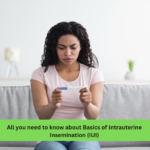Do Surrogate Mothers pass DNA to child?
Nature and technology keep on working together in a unique way. Family planning is no exception to this statement. In the recent years, medical science has made so much advancement that it is now possible for the childless couples to become parents through infertility treatments with the help of a third party. The third party help can be in form of an egg or sperm donor, where a person provides egg or sperm in the case where the intended mother or father is not able to produce it. In other situations, surrogacy is the best suited option, where someone else carries the baby for the intended parents.
However, there always arises a question that if surrogate mother is biologically related to the child. The general and a clear answer to this question is No. In a gestational surrogacy, the DNA of baby comes from the intended mother and father or the egg and sperm donor.

However, the clear answer to this question is NO as stated earlier. The baby has his own blood that flows in his veins and the DNA that the baby carries is of the egg and sperm from which he was created. The baby continues to grow in the uterus after the embryo is successfully implanted in the gestational carrier’s uterus. The placenta develops in the uterus which not only nourishes the baby but also acts as a filter. Hence, it is of great importance in the pregnancy. This filter allows only certain things to pass through and also prevents the DNA of the surrogate mother to pass between the baby and surrogate.
Recent studies have explained that the cells are able to cross the placental filter and introduce surrogate’s DNA to the baby. But that doesn’t mean that the genetic makeup of the baby gets affected or the looks of the baby will resemble to the surrogate mother. The passed DNS through placenta is not sufficient to have any impact on the child as the placenta truly acts as an effective filter.
Exceptions to the scenario
It has been clearly stated that the DNA of the surrogate mother does not pass to the baby. But, there lies an exception also. In some rare cases of traditional surrogacy, where the woman undergoes an artificial insemination or the conception is done in a traditional manner, the baby would have half DNA of the surrogate mother as her eggs are used. Since, the surrogate mother, in such cases, becomes genetically related to the baby, it means that she has rights on the baby, which increases the complications of the procedure. Therefore, due to these legal and ethical ramifications, traditional surrogacy is rarely practiced.
While the present understanding of the research on the genetics does not provide any screening mechanism, the intended parents do have the rights to know various factors that can affect the health of their baby through surrogate mother.





No Comments